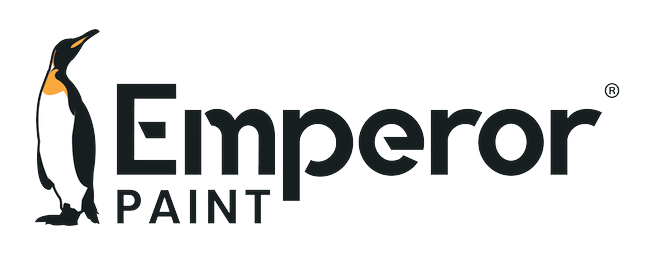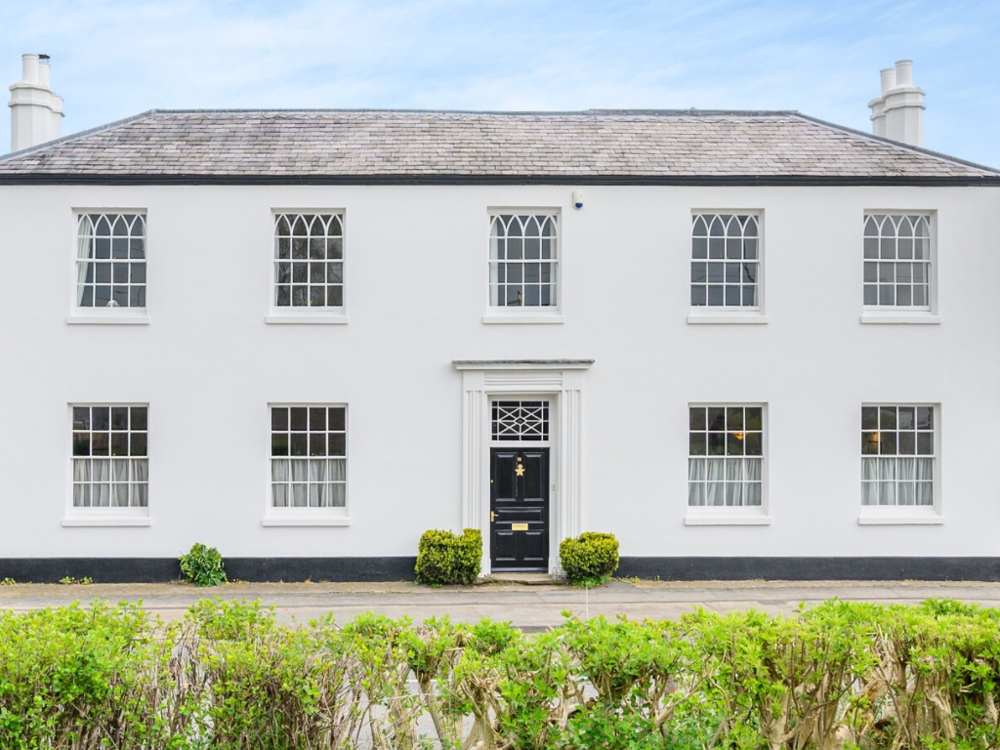
Masonry paints are one of the most commonly used paints across the UK, however they also come with some of the most misconceptions. From vague marketing terms to inaccurate advice, getting definitive and accurate information regarding masonry paint can be difficult. Here at Emperor Paint, we are specialists in exterior paints and masonry products and our technical team have over 35 years experience within the industry, which is why we have put together this guide to masonry paint so you can find all of the information you need.
What Is Masonry Paint?
The term masonry paint refers to a paint that is designed for use on exterior masonry surfaces, including brick, stone, cement and render. Masonry paint as with all paints offers an opaque, coloured finish that gives your home an attractive finish, however the job of masonry paint is much more than just aesthetic.
Masonry paint to be effective must achieve a number of things. It must protect your exterior walls, help prevent damp and withstand weathering, all while not negatively impacting the performance of exterior walls. For this reason, the masonry paint you choose to use can have a big impact on your home.
Types Of Masonry Paint
Generally speaking, there are four main types of masonry paint. The reason behind these differing types of masonry paint is that technology has developed over-time. New innovations, changing requirements from our homes and new regulations have all contributed towards masonry paints varying in formulation.
These formulations vary in a number of ways, including their breathability, weather resistance and practical uses.
Generally, the higher the weather resistance and the higher the breathability, the better a masonry paint will be for your home, as this will ensure water cannot enter the wall but moisture can also naturally breathe out over-time.
LIMEWASH
Mineral paints such as limewash are a very traditional form of exterior paint that has been used on properties across the UK for hundreds of years. While highly breathable, limewash does not offer the level of durability of modern masonry paints meaning it is often reapplied every few years. This is due to very low weather resistance that causes the limewash to weather off the wall.
OIL-BASED MASONRY PAINT
Oil-based masonry paint, otherwise known as pliolite, is reserved solely for applying in conditions below 5°C or to prevent the paint from washing off straight after application due to rainfall. Pliolite has a very low breathability due to the oil-based formulation and is very rarely advised outside of commercial painting in winter.
ACRYLIC MASONRY PAINT
Acrylic-based masonry paint is the most common type of masonry paint available in the UK. These are water-based formulations containing an acrylic binder that were originally derived from internal emulsions. Acrylic-based masonry paints aren't fully waterproof as they will absorb moisture over-time and generally while breathable, do not always have high breathability causing them to trap moisture. This is due to the plastic content in the paint that prevents water vapour from easily passing through the surface.
Generally, acrylic-based masonry paints last anywhere between 1-15 years before they eventually begin to peel and flake. Some 15 year lifespan estimations however are often based on best case scenarios in terms of quality of application and level of weathering.
SILICONE MASONRY PAINT
Silicone masonry paint, or silicate-based masonry paint, is a new, cutting-edge form of masonry paint that contains silicone-resins within its formulation. Silicone masonry paint is water repellent, meaning it will help prevent water from absorbing into exterior walls by causing the water to roll off the walls. Silicone masonry paint is also highly breathable, allowing walls to naturally breathe without trapping moisture. As water is the biggest cause of paint failure, by keeping exterior walls dry silicone masonry paint is extremely durable, often coming with a 25+ year lifespan.
Due to the highly advanced technology in silicone masonry paints, they are slightly more expensive than standard masonry paints. This is because the manufacturing process with silicone masonry paint is extremely difficult. Having said this, the long-term value of not having to re-paint your house every few years is an attractive prospect for many homeowners.
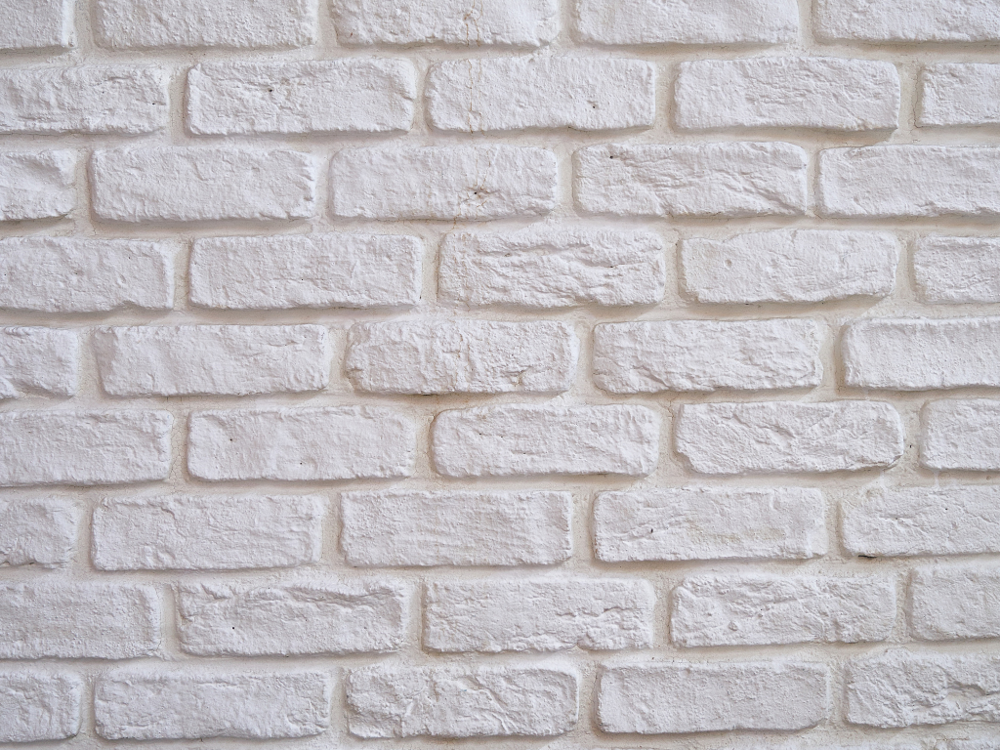
How Breathable Is Masonry Paint?
As we have mentioned, breathability is crucial for masonry paints. The impact that low breathability masonry paint can have on you home are vast and widespread.
Our homes can gather moisture in a number of ways such as through water absorbing into the external walls, leaking gutters or condensation that naturally builds up from washing machines, cooking and showers. If external walls can't breathe, the moisture has no where to go. In turn, it will build-up within the walls of a property and cause damp problems.
Due to the importance of breathability, many masonry paints available in the UK state they are 'breathable' or 'microporous'. An SD value is a measurement of how 'breathable' a substrate is and how easily water vapour can freely pass through. The lower the SD value, the more breathable the surface is. Generally, an SD value of 0.5 or below is considered breathable by British Standards, however many masonry paints do not openly disclose an SD value. When choosing a masonry paint we highly recommend enquiring about the SD value to ensure you do not compromise the breathability of your home.
Our Emperor Masonry Paint has an SD value of 0.03, making it highly breathable. Unlike standard masonry paints, Emperor Masonry Paint's silicone formulation penetrates and bonds to the wall and maintains the walls open-pore structure, ensuring water vapour can freely pass through the paint.
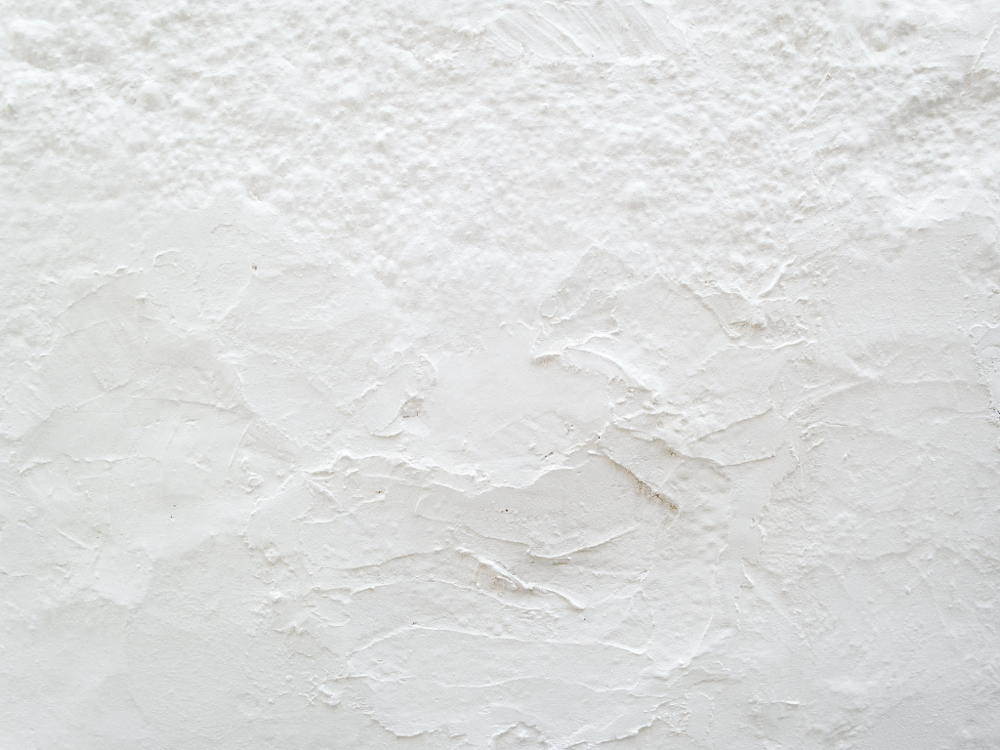
How Waterproof Is Masonry Paint?
While allowing water to breathe out is crucial, it is equally as important to prevent the water getting into the walls in the first place. Standard masonry paints are often described as 'weatherproof' or 'weather resistant' however this does not mean they prevent water absorbing into your walls.
When exterior walls absorb moisture, this is a process called penetrating damp. This can lead to internal damp, damaged brickwork, cracked render, discolouration and peeling paint. Furthermore, wet walls can contribute towards increased heat loss, as wet walls lose heat quicker than dry walls.
Our super hydrophobic technology causes rainwater to form beads that simply roll off your walls, leaving your home dry and protected from the damaging effects of the weather. While a standard masonry paint allows the water to sit on the surface and begin to absorb, Emperor Masonry Paint causes the water to bead and roll off the surface, reducing the absorption of water in your walls by 96%.
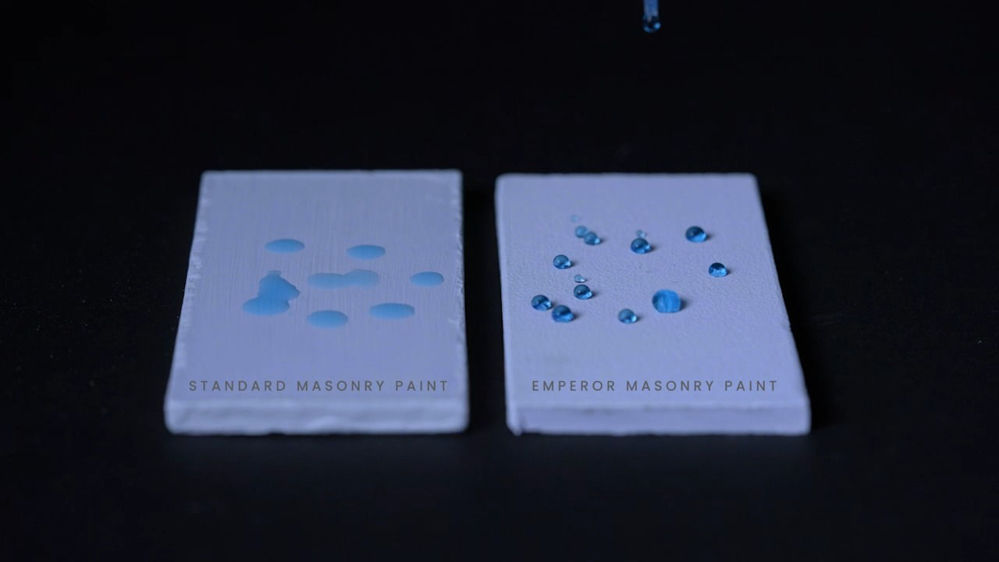
When Is The Best Time To Apply Masonry Paint?
One of the most important aspects of applying masonry paint is ensuring you have the correct conditions. Rain is a big problem when it comes to painting outside, so ensure you have a dry day where rainfall isn't due. Generally, masonry paint is showerproof in 1-2 hours. This isn't to be confused with the recoat time, which is the time it takes before you can apply your second coat, which is longer.
Temperatures with water-based paints must be above 5°C for the water to be able to evaporate to let the paint dry. High temperatures can also pose a risk, as strong, direct sunlight can cause paint to dry too quickly.
You can apply masonry paint almost all year round, but the best time of year is late spring, where temperatures aren't too high and the risk of rainfall is low.
Can I Use Any Masonry Paint?
It is a common misconception that you can use any masonry paint. This is true in the majority of cases but not all.
There are certain situations when you must use a particular type of masonry paint. For example, lime renders and other lime surfaces must be painted using a highly breathable masonry paint, as these are particularly prone to moisture-related issues due to the porosity of the lime.
Furthermore, silicone renders have increased in popularity in recent years. These silicone renders will not allow a standard masonry paint to adhere as these paints are acrylic-based. Due to this, if you are painting a silicone render, ensure you use a silicone-based masonry paint.
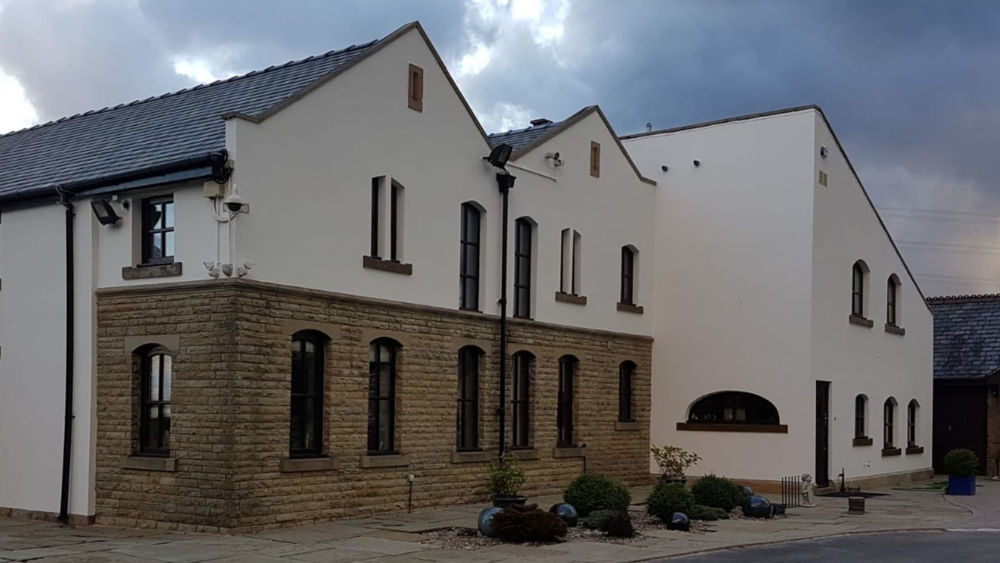
How Do You Apply Masonry Paint?
Masonry paint is applied much in the same way as internal emulsions, with either a brush or roller. We advise using a long-pile roller as this makes painting semi-smooth and rough masonry surfaces quick and easy.
You can spray masonry paints, however this is only recommended for experienced spray professionals who can use a spray machine safely.
When applying masonry paint, ensure you protect all surfaces such as floors, doors and windows. After all, protecting these surfaces is much easier than cleaning them later on. Only paint dry surfaces, as paint will not be able to dry on a damp surface. It is also important that you clean and repair surfaces first before painting. You want a surface that the paint can form a strong bond to, so taking care to prepare the surface is crucial.
For a full breakdown, read our guide on how to apply Emperor Masonry Paint.
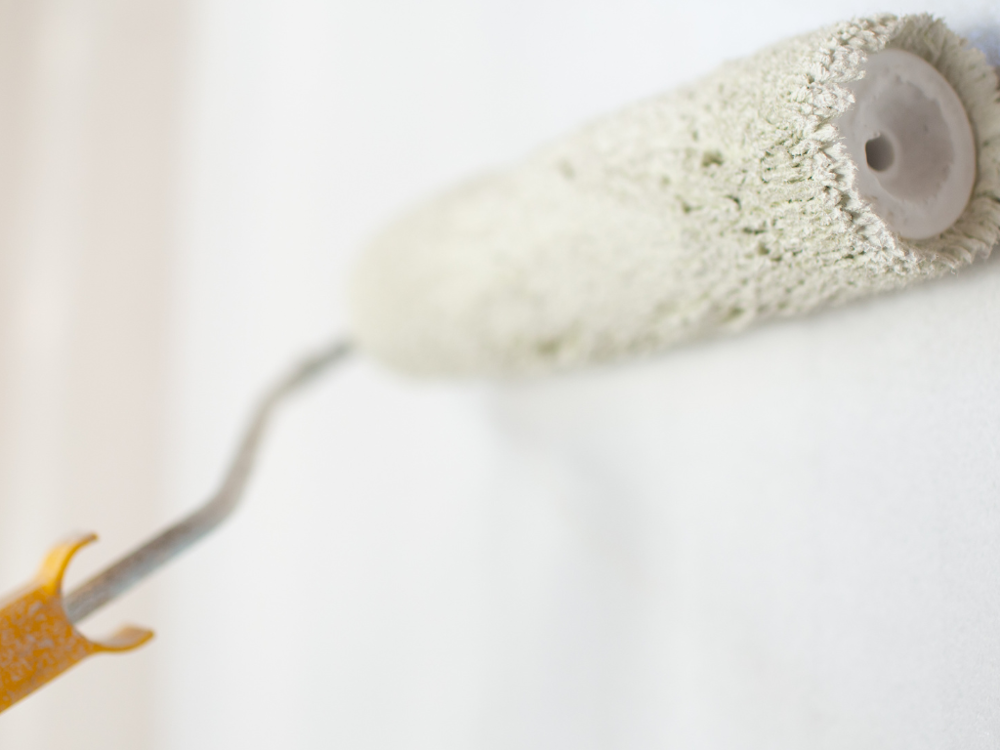
Do You Need A Primer With Masonry Paint?
With exterior walls, there is a wide variety of surfaces you can encounter. As a rule, most masonry paints require a primer to be applied first before you paint and bare, unpainted surfaces. This includes brick, stone and untreated renders such as sand and cement render. You do not need to apply primer to previously painted walls or silicone renders that are pre-coloured.
It is important to check the datasheet for your chosen masonry paint, as many masonry paints have a special primer that is designed to be compatible with the paint.
We hope we have answered any questions you may have had regarding masonry paint. If you have any other questions or would like advice, feel free to get in touch with our team of experts who are on hand to assist you. Contact them today by emailing info@emperorpaint.co.uk or calling them on 0161 509 9009. Alternatively, discover Emperor Masonry Paint and order your colour card.

